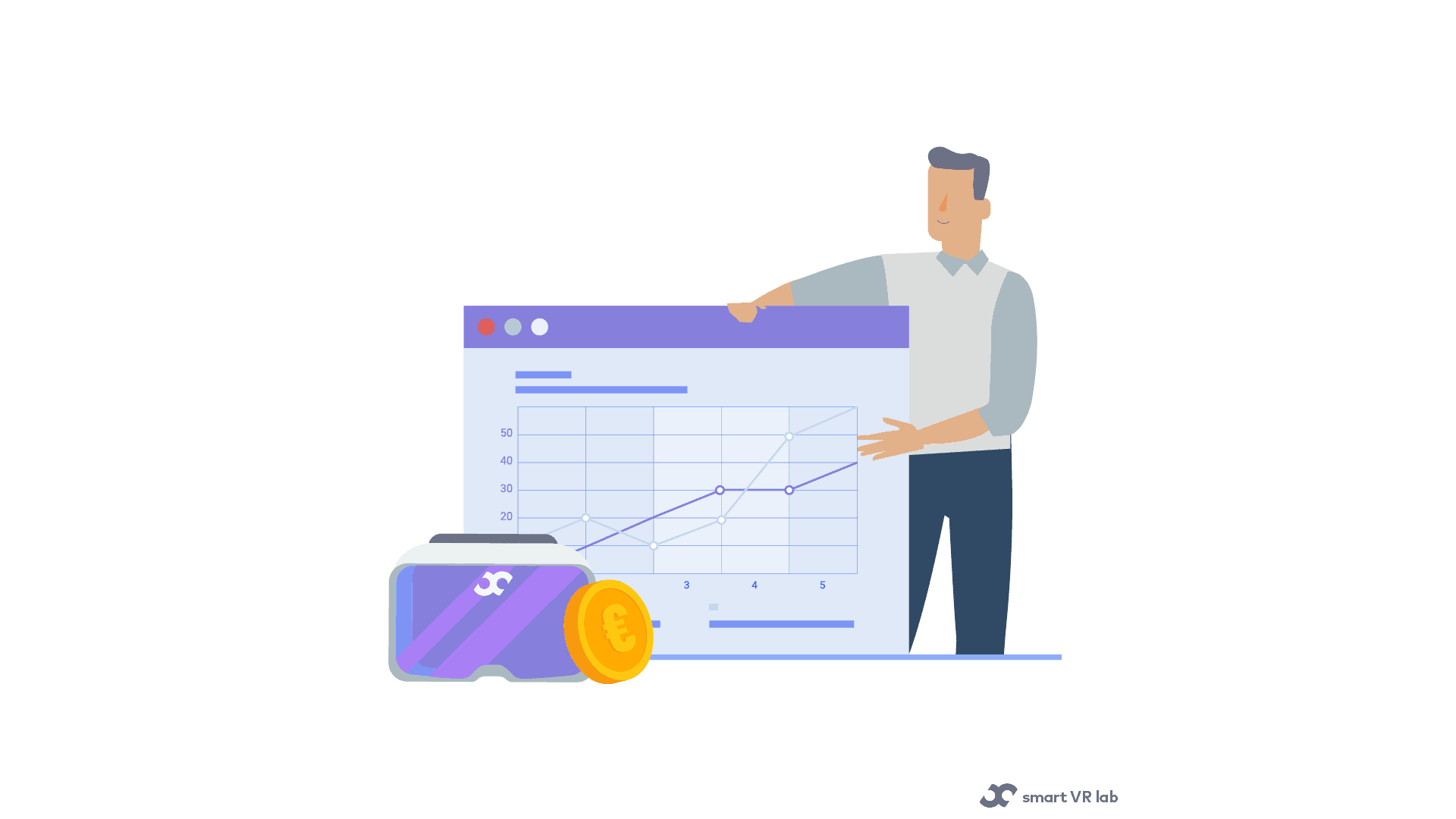Most companies still think using Virtual Reality for training is too expensive. Yet, when making this assumption, a lot of things are not taken into consideration.
Let’s just take a look at the most important attribute for any investment: the Return of investment, short ROI.
When you actually do the maths, you realise that not making use of VR is actually more expensive for your business in the long run – meaning the ROI of VR in training is higher than it is for ordinary training, at least after a certain period. In our use case, the company ends up saving 57.06% already from the second year of introducing VR training onwards compared to classroom training.
Of course, it depends on your business and situation and the ROI might vary according to that. To give you a more useful answer to the question of the ROI, we will be examining the exemplary scenario in detail.
Scenario for the ROI of VR
It is not easy to calculate the exact returns for investing in VR training as every situation is unique and there are many variables to be taken into account.
First of all, let’s simplify and compare with the most used training method in organisations today: classroom training. Let’s break it down by taking a look at the costs of creating training material, recurring training costs and costs for operational disturbance.
Our example for examination: a retail lifestyle chain with 200 stores and 1000 local sales employees. All these employees go through a full-day sales and customer interaction classroom training once every two years to stay up to date.
Training Material Creation Cost
Assuming the training material for the classroom training is already made, no investment is required. However, creating VR training scenarios requires an upfront investment. Let’s assume the creation of multiple VR training scenarios that cover everything said in the classroom training costs about €100.000,-. Bear in mind that this investment is only required in the first year and has low annual recurring costs for the software to be monitored and, perhaps, updated after some years.
Training Resources Annual Cost
Resources are also required apart from creating training material. For the classroom training that would be the trainer, location and even travelling expenses. To simplify the comparison, let’s only consider the expenses for the trainer. With 20 employees a full day in a classroom and everyone being trained once in 2 years, you will need 25 training days. Hiring a single trainer for this timespan will cost you around €16.000,-.
On the other hand, there are resources needed for the VR training, such as a VR platform like Smart VR Lab and VR headsets. The typical price for 1000 employees playing 6 scenarios would cost around €13.500,- per year. Purchasing 20 VR headsets with a depreciation of 3 years will cost around €3.000,- per year. This makes it a total of €16.500,- annually for VR training.
Cost of not working
Finally, let’s consider the cost of not working. When the trainees are in training, they cannot contribute to the business directly. Using a €40,- internal hourly rate and employees only training once per 2 years, the classroom will cost €160.000,- Assuming the VR training is done 6 times a year and requires 15 minutes per training, the VR training will cost about €60.000,-.
The Return on Investment (ROI of VR)
Lots of expenses, lots to consider – what does it all add up to? Well, in conclusion, the traditional classroom training makes for an annual cost of about €176.00,- in total, not including location and travel expenses.
VR training requires an investment of about €167.000,- in the first year, so almost the same amount. However, the cost drops the following years to a sum of about €77.000,- yearly.
So while VR might seem like a big investment to begin with, it quickly shows profits from the first year alone – the ROI is reached in the first year already. Of course, this is a fictional scenario, but it still goes to show that VR training is the more cost-effective training method. Want more real numbers and figures? Then continue reading here.
To learn more about VR for business, you can read what we can learn from failed VR Projects and how to avoid failure. And also learn the benefits of VR integration to E-learning.
Smart VR Lab develops and produces training content for businesses across multiple industries. To transform your business, simply contact Smart VR Lab for a demo and set up a meeting with our team. If you have questions on anything related to VR, you can always send us a mail to info@smartvrlab.nl
Request a VRee trial
For a free 4-week trial, demo or simply more information,please leave your email.

